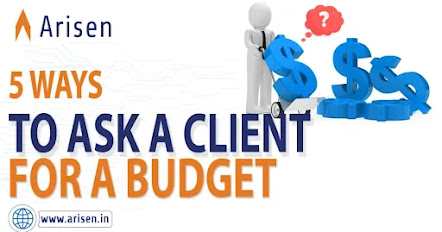Although it can be awkward to do so, asking a client about their budget is a crucial part of doing business. Knowing a client’s spending limits enables you to match your services or goods to their resources and give them options that are both practical and affordable. Nonetheless, because it necessitates sensitivity and professionalism, handling the topic of budget can occasionally be difficult. Here are five various ways to request a client’s budget, each catered to a particular situation or circumstance.
1. The Direct Approach:
Using a direct approach is one of the simplest ways to request a client’s budget. Simple and effective, this approach functions best when a rapport has already been built with the client. You can start the conversation by emphasizing how crucial it is to comprehend the client’s financial situation in order to offer them precise and customized answers. For instance: “We appreciate your consideration of our offerings.
We would appreciate it if you could share your budget with us so that we can make sure to offer you the finest possibilities. By doing so, we can better understand your financial situation and suggest options that will fit your demands.”
You may build trust and persuade the client to share their budget with you by being upfront with them about why you need it and telling them that it will be to their advantage.
2. The Value Proposition Approach:
Focusing on the worth of your goods or services is another great technique to inquire a customer about their budget. You might emphasize the advantages and results they can anticipate from your services before requesting their budget with an eye toward obtaining those results. For instance: “Our services/products are created to assist our customers in achieving “insert important results or advantages here”.
It would be beneficial for us to comprehend your budget so that we can offer you the greatest possibilities. This will enable us to suggest solutions that support your monetary objectives and assist you in getting the outcomes you desire.”
You can give the client a strong incentive to disclose their budget information with you by connecting the budget request to the value they can anticipate receiving.
3. The Comparative Approach:
Some customers can be reluctant to disclose their budget out of fear that they would be overpaid or receive inflated pricing. In these circumstances, you can ask for their budget using a comparative strategy. You might underline how knowing their spending limits will help you offer them prices that are both reasonable and competitive.
For instance: “We are aware that for many of our clients, the cost is a key factor. We want to provide you with the most return on your investment. Knowing your spending limit allows us to customize our solutions to your needs and offer you options for affordable pricing.”
You can address the client’s worries and foster trust by framing the budget request as a way to provide reasonable and competitive pricing.
4. The Consultative Approach:
You can use a consultative approach to request a client’s budget if you work in a consultative sales or service capacity. In order to accomplish this, open-ended inquiries must be used to nudge clients into sharing their budgets during the consultation process.
For instance: “In order to guarantee that the solutions we offer are in line with your financial objectives, we would like to understand your budget as part of our consulting process. Could you elaborate on your financial concerns and the amount you feel comfortable investing in this project/service?”
You can make the budget request seem more natural and less intrusive by framing it as a typical component of the consultation process.
5. The Relationship-Based Approach:
You can ask for the client’s budget using a relationship-based approach if you already have a working relationship with them. This strategy depends on familiarity and trust, and you can use your relationship to your advantage to politely request their budget details.
For instance: “As your valued client, we would like to collaborate with you to identify solutions that satisfy your needs and your financial constraints. Could you let us know what your budget is so we can provide options?





No comments:
Post a Comment